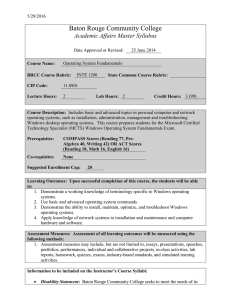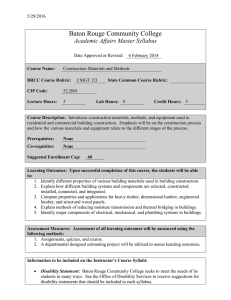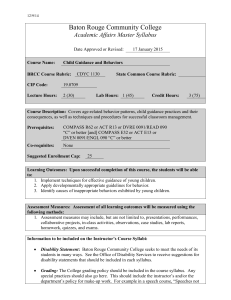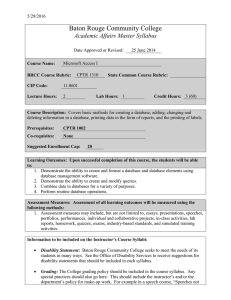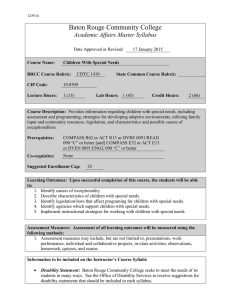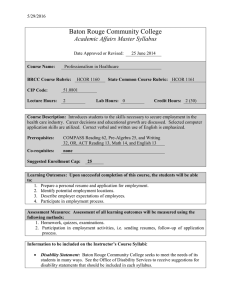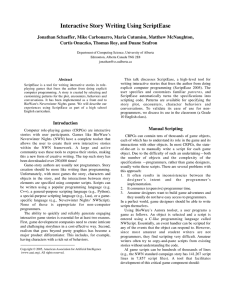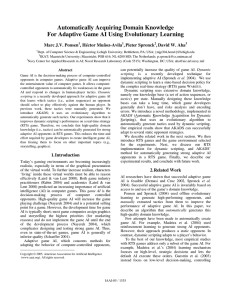Baton Rouge Community College Academic Affairs Master Syllabus
advertisement
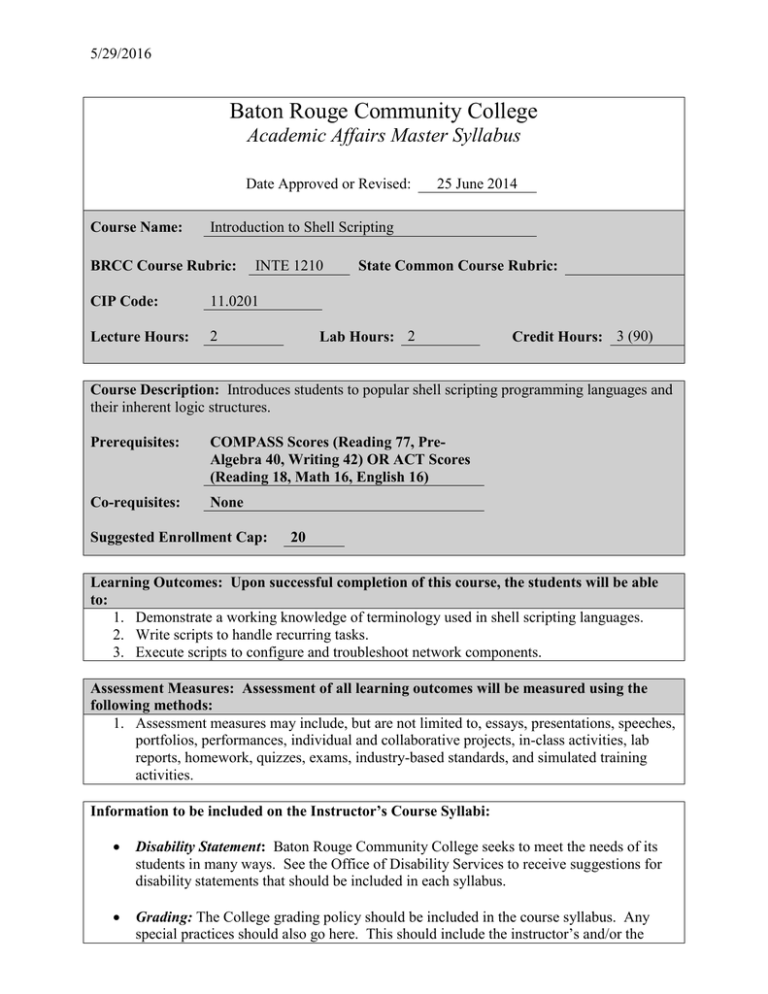
5/29/2016 Baton Rouge Community College Academic Affairs Master Syllabus Date Approved or Revised: Course Name: 25 June 2014 Introduction to Shell Scripting BRCC Course Rubric: INTE 1210 CIP Code: 11.0201 Lecture Hours: 2 State Common Course Rubric: Lab Hours: 2 Credit Hours: 3 (90) Course Description: Introduces students to popular shell scripting programming languages and their inherent logic structures. Prerequisites: COMPASS Scores (Reading 77, PreAlgebra 40, Writing 42) OR ACT Scores (Reading 18, Math 16, English 16) Co-requisites: None Suggested Enrollment Cap: 20 Learning Outcomes: Upon successful completion of this course, the students will be able to: 1. Demonstrate a working knowledge of terminology used in shell scripting languages. 2. Write scripts to handle recurring tasks. 3. Execute scripts to configure and troubleshoot network components. Assessment Measures: Assessment of all learning outcomes will be measured using the following methods: 1. Assessment measures may include, but are not limited to, essays, presentations, speeches, portfolios, performances, individual and collaborative projects, in-class activities, lab reports, homework, quizzes, exams, industry-based standards, and simulated training activities. Information to be included on the Instructor’s Course Syllabi: Disability Statement: Baton Rouge Community College seeks to meet the needs of its students in many ways. See the Office of Disability Services to receive suggestions for disability statements that should be included in each syllabus. Grading: The College grading policy should be included in the course syllabus. Any special practices should also go here. This should include the instructor’s and/or the department’s policy for make-up work. For example in a speech course, “Speeches not given on due date will receive no grade higher than a sixty” or “Make-up work will not be accepted after the last day of class.” Attendance Policy: Include the overall attendance policy of the college. Instructors may want to add additional information in individual syllabi to meet the needs of their courses. General Policies: Instructors’ policy on the use of things such as beepers and cell phones and/or hand held programmable calculators should be covered in this section. Cheating and Plagiarism: This must be included in all syllabi and should include the penalties for incidents in a given class. Students should have a clear idea of what constitutes cheating in a given course. Safety Concerns: In some programs this may be a major issue. For example, “No student will be allowed in the safety lab without safety glasses.” General statements such as, “Items that may be harmful to one’s self or others should not be brought to class.” Library/ Learning Resources: Since the development of the total person is part of our mission, assignments in the library and/or the Learning Resources Center should be included to assist students in enhancing skills and in using resources. Students should be encouraged to use the library for reading enjoyment as part of lifelong learning. Expanded Course Outline: I. II. III. IV. V. VI. Programming Terminology Logic Symbols and Techniques with Programming Write Program Documentation Object-Oriented Programming Logic Charts Shell scripts 2



